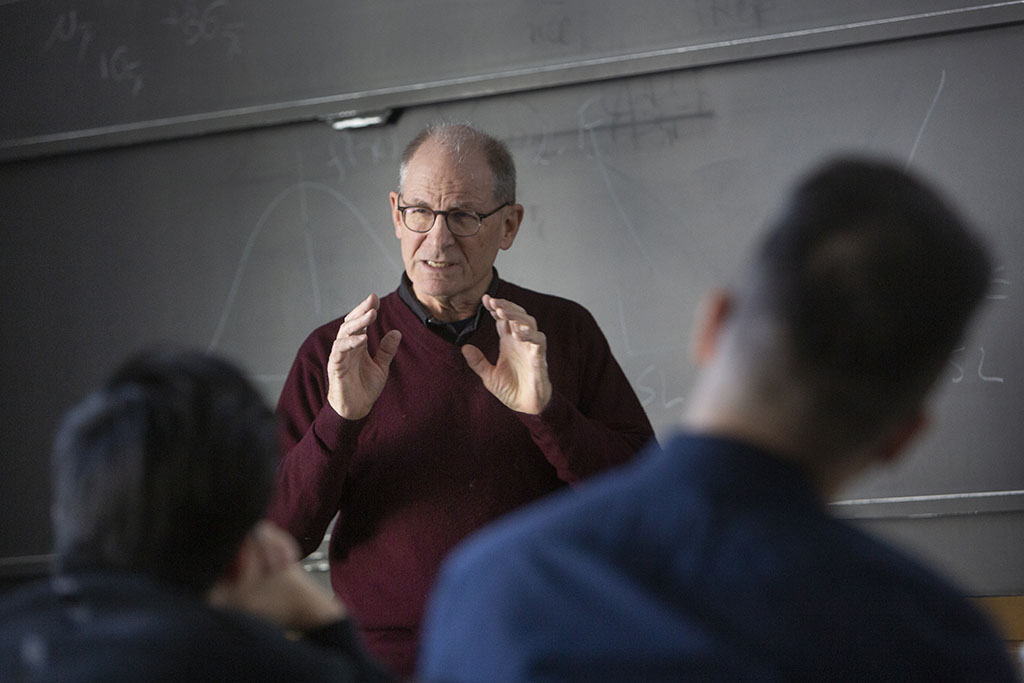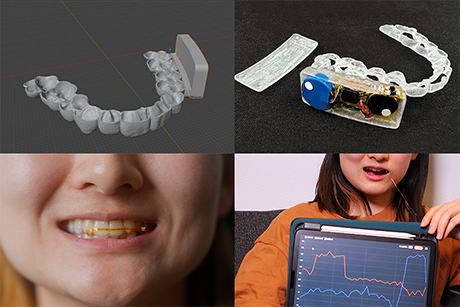Talking Shop: David Hardt SM ’75 PhD ‘78
Teaching the Principles of Manufacturing
The past four decades have been transformative for manufacturing. An explosive growth of new technologies has revolutionized how products are made and distributed. In the 1980s, the steep rise in Japanese manufacturing reshaped the global market. Advances in the fields of automation, robotics, and factory systems have drastically altered the landscape of the traditional factory floor. David Hardt, Ralph E. and Eloise F. Cross Professor in Manufacturing, has had a front row seat to these radical changes.
Hardt joined the faculty in MIT’s Department of Mechanical Engineering in 1979 and later served as Director of the MIT Laboratory for Manufacturing for nine years. A leading expert in manufacturing process control, Hardt pioneered new equipment and control techniques in fields such as gas metal arc welding, metal forming in the aerospace industry, and micro-fluidic device manufacture.
Hardt was also involved with the initiation and management of the “Leaders for Manufacturing” (now LGO) program between Sloan School of Management and MIT’s School of Engineering, serving as Engineering Co-Director for four years. Drawing from this experience, he noticed that MIT’s degree programs weren’t adequately preparing engineering students for careers in manufacturing. In 2010, he helped develop MIT’s Master of Engineering in Advanced Manufacturing and Design (MEngM), a year-long program that prepares graduate students to be engineering leaders in manufacturing.
Last year, Hardt and colleagues like Sanja Sarma, Vice President for Open Learning, took lessons from the MEngM degree and launched the MITx Micromasters Program in Principles of Manufacturing, an online program about the fundamentals of manufacturing as developed in the MEngM.
How did you decide to spend your career focusing on manufacturing?
Well, when I got to MIT I was enamored with biomedical engineering. I studied muscle force control during walking for my PhD. By the time I graduated, the market was oversaturated and no one was interested in hiring a biomedical engineer. So I took a post-doctoral role in manufacturing at MIT. I had studied control and dynamics in graduate school and started thinking of ways I could apply that to manufacturing. That’s when I took the theme of process control and ran with it. In the parlance of controls, I was expanding the control to include the whole manufacturing process – not just the machine itself.
In the forty years since you joined the faculty, what has been the biggest change you’ve seen in manufacturing?
The level of sophistication has been one of the biggest changes. Manufacturing has become such a highly refined activity globally. Look at any modern manufacturing operation and it has to be one of the most complex technical systems there is on earth.
It used to be that with enough labor, some skill, space, and time, you could make anything and make a profit. But the standards manufacturers are now held to are extremely high. You can’t make something with poor quality and high cost and get away with it anymore. Consumers’ expectations have really upped the ante.
Rethinking how manufacturing is taught has been a theme throughout your career. How did the MEngM program initially come to fruition?
I started collaborating more with colleagues from the Sloan School of Management as well as managers and operating engineers in industry. It gave me more of a ground truth in what was important in manufacturing. That opened my eyes and in some of the classes I was teaching, I shifted from a purely mechanical engineering approach to a broader, more pragmatic approach that took into account what was really happening in industry.
When the Singapore-MIT Alliance began in 1998, we knew we wanted to collaborate with researchers in Singapore on manufacturing. We developed a novel professional manufacturing degree program in Singapore. For five years, we ran it from a distance. It was a roaring success so we realized that there was an opportunity to start a similar program right here at MIT and launched the MEngM program. For our students, it’s like a capstone degree. Undergraduate manufacturing classes just scratch the surface – the MEngM really educates students in the theory and practice of manufacturing.
How did you use the lessons you’ve learned from the MEngM program to shape the MITx Micromasters Program in Principles of Manufacturing?
There are four core classes in the MEngM program that we started calling the ‘principles of manufacturing.’ We realized that teaching those classes as a unit would provide great utility on their own. Someone working in industry who has a mechanical engineering background could take those classes and it would greatly enhance their ability to work in manufacturing and design. So along with my colleagues Jung-Hoon Chun, Stephen Graves, Duane Boning, Stan Gershwin, Jose Pacheco, and John Liu, I worked with Professor Sanjay Sarma and the MIT edX team to put together eight online courses on manufacturing process control, manufacturing systems, management in engineering, and supply chains for manufacturing. The courses are taught by a seasoned team of faculty from MIT MechE, MIT Leaders for Global Operations Program, and Sloan School of Management.
What are you hoping students will take away from the Micromasters Program?
Everybody knows that the biggest hurdle in manufacturing is the conversion from a groundbreaking idea to actual production. We hope that the program can help professionals across industry surmount that hurdle. Our first year of the program just launched in March 2018, and we have had students from all across the world at varying levels in their career. Our first Micromasters credential should be awarded this fall, and we hope to admit some of them to the MEngM Program. I’m looking forward to hearing more from them about how they plan to implement the skills they learned through the program throughout their careers.
To learn more about the MIT edX Micromasters Program in Principles of Manufacturing, please visit https://micromasters-mit-edu.ezproxy.canberra.edu.au/pom/, and details on the MEngM can be found at https://manufacturing-mit-edu.ezproxy.canberra.edu.au/



